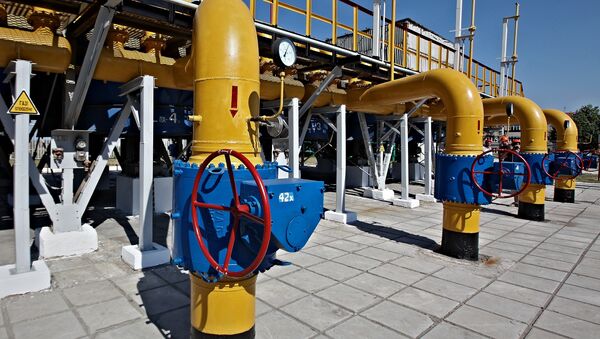MOSCOW, October 28 (RIA Novosti) — UK energy bills could rise significantly if gas supplies from Russia are disrupted this winter, as contingency plans are being drawn up for the event of shortages.
Cordi O’Hara, Director of Market Operations of the UK National Grid moved to reassure customers that “We’ve a whole suite of tools we can use before we’re anywhere close to emergency actions,” though an official from Ofgem, the energy market regulator, warned of possible disruption to prices.
UK site Energy Live News reported an Ofgem official as saying: “If we were to experience disruption over the winter we expect the impact on GB security of supply to be one in terms of prices rather than physical disruptions,” adding that the price rise “depends on size, nature and duration of any disruption.”
In its Winter Outlook report published today, the National Grid advises that in an extreme scenario, faced with cold winter conditions and a full disruption of gas from Russia, UK customers would be hit with price rises as Dutch and Norwegian gas imports are diverted away from the UK, leading to greater imports of liquefied natural gas.
Importing LNG is an expensive option, as the gas has to be shipped by tanker from countries such as Algeria and Papua New Guinea, having been squeezed and cooled to minus 160C. A further option explored in the report is to limit demand, in which case the National Grid would have to pay industrial customers of gas to limit their usage, in order to protect the household supply.
In the aftermath of the report, officials sought to calm fears, with Ofgem announcing on its twitter page that “there is no increased risk of blackouts this winter,” and “we can ensure security of power supply.”
The UK is also facing strain on its electricity supply, in the wake of generator closures and breakdowns at power stations. The margin of spare electricity capacity has decreased from 17 percent three years ago to a predicted four percent this winter. In the same report, National Grid also detailed possible contingency measures to protect supply, which include increasing imports from continental Europe.


